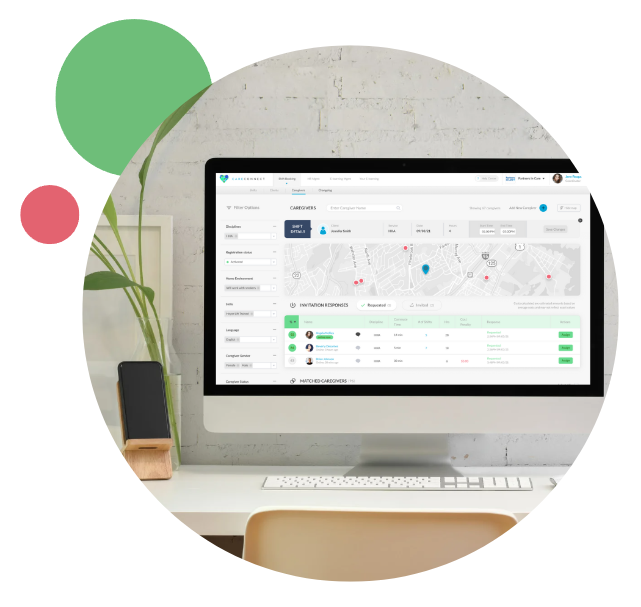
AI in Home Care: Data Privacy in an AI Era
Increasing Concerns & the Future of AI in Home Care
AI in Home Care: Data Privacy in an AI Era
Artificial intelligence (AI) is an increasingly popular topic in the home care and healthcare industries. While AI in home care, and across industries, is still a relatively new and changing technology, its impact on businesses has been substantial. It simplifies agency operations, makes healthcare more intelligent, and eliminates tedious day-to-day tasks. According to McKinsey, nearly 80% of company executives utilize AI and see value from it.
Increasing Concerns with Data Privacy & AI in Home Care
However, it is no surprise that AI is often viewed as a double-edged sword. Though extremely useful in many ways, many people are not truly ready to embrace the power and responsibility associated with AI. Common concerns regarding AI and privacy include:
• False data and biases
• Data exploitation
• Privacy violations
• Tracking
Biases and data exploitation concerns are primarily about AI models trained with public data found on the internet. Training a well-performing AI model usually requires a vast quantity of balanced data in which all expected inputs are present equally. While data scraped from the internet more than satisfies the volume requirement, it often falls short of the requirement for balance – for example, images uploaded to the internet come predominantly from Western cultures, and the cultural input data bias will also make the trained model degrade in performance when used in a different context.
The recent emergence of large language models (LLMs) has brought another privacy concern. As the models require such vast resources to train, it is no longer feasible for every organization to train on its own. The models are available as services from OpenAI, Meta, Anthropic, and Google, to name a few, and one needs to upload their private data to the AI service to fine-tune the model to their own dataset.
The Future of AI in Home Care and Protecting Data
With an increasing population requiring care and decreasing public resources to provide it, increased efficiency is crucial to help as many people as possible. While home care will remain at least 100% human-to-human service in the near future, there is an excellent opportunity to optimize the care provided and reduce overhead costs. AI and other advanced algorithms can drive more home care resources where the care happens, rather than administering and managing it.
CareConnect – Data Privacy & AI in Home Care
CareConnect utilizes machine learning and artificial intelligence (AI) to facilitate assigning cases to caregivers, enhancing efficiency and accuracy. Our platform learns from previous successful assignments made by human coordinators and makes recommendations based on that data, ensuring the utmost privacy and security. CareConnect only uses agency data to make recommendations to that same agency—there is no cross-pollination from other agencies’ data. Hence, two agencies can have very different policies and still benefit from AI predictions aligned with their way of working.
Furthermore, the ShiftMatch.AI models used are only trained with private caregiver assignment data. We are not combining this data with any other data source – public or otherwise. The models run in the CareConnect cloud platform (we use AWS), and neither training nor inference data passes to any other service to utilize AI.
Interested in securely enhancing efficiency and accuracy at your agency? Meet with the CareConnect team today.